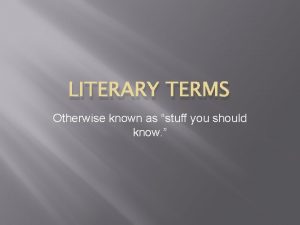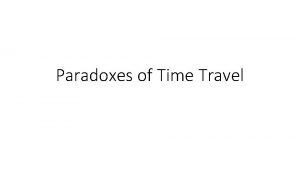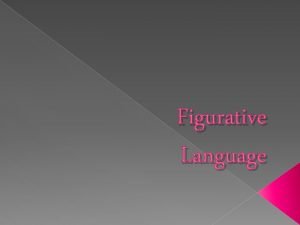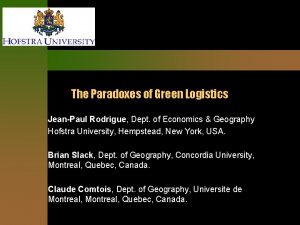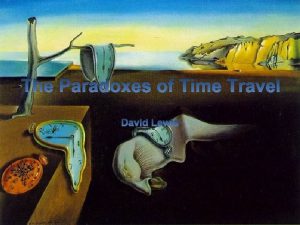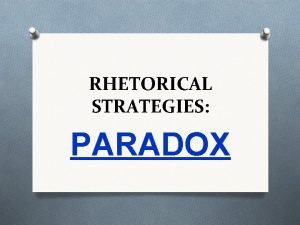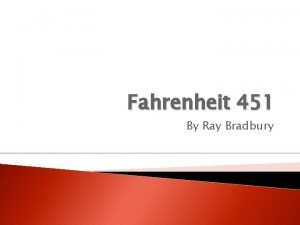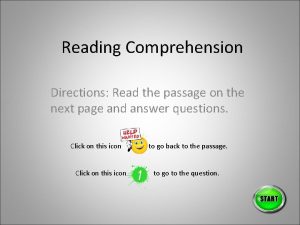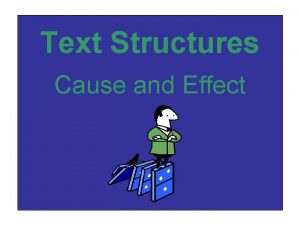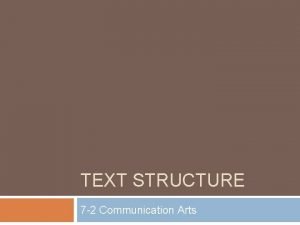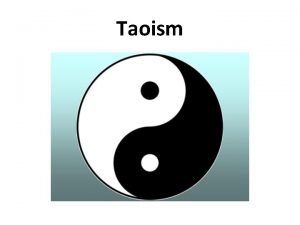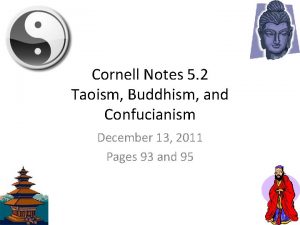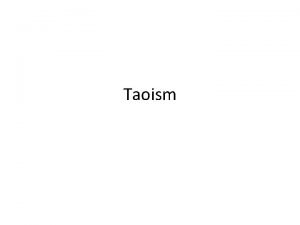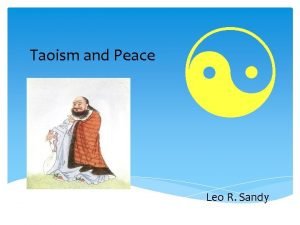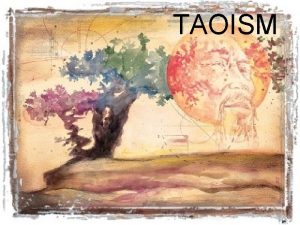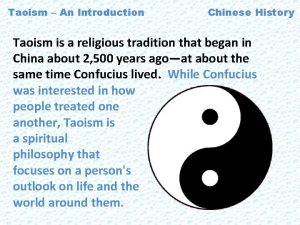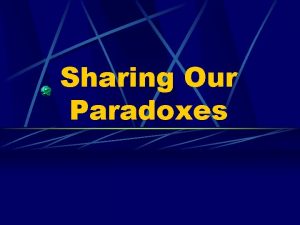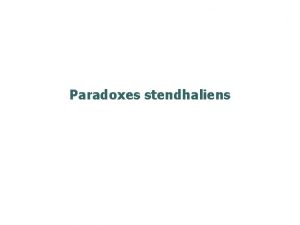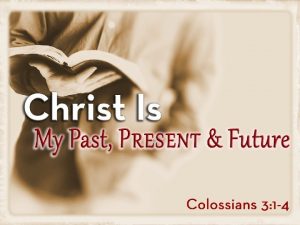Taoism Passage 5 DIRECTIONS A Identify the paradoxes














- Slides: 14

Taoism

Passage 5 DIRECTIONS: A) Identify the paradoxes within this passage. Explain their significance. B) What are the main ideas of this passage? The Tao doesn’t take sides; It gives birth to both good and evil. The Master doesn’t take sides; She welcomes both saints and sinners. The Tao is like a bellows; It is empty yet infinitely capable. The more you use it, the more it produces; The more you talk of it, the less you understand. Hold on to the center.


Lao Tzu Background • Lao Tzu - ~ 600 B. C. E. • Was regarded as a sage; “Tzu” means “master” => Lao Tzu means “old master” or “old boy” • Lao Tzu disliked the disorder of Chou dynasty and decided to leave his village. When the guard could not persuade him to stay, he asked Lao Tzu to leave some words to live by. These words became known as the Tao te Ching, or “The way of things. ” • Lao Tzu vanished over the mountain pass and was never seen again.

Taoism • Taoism: Tao, an Chinese word, means "way" or "path. " • The Tao is often translated as "the Way of all things“ • The Tao is viewed as “an empty void pregnant with the infinite possibilities of existence. ” • The meaning of the Tao is “beyond the capacity of words” and beyond all opposites. * As a result, it often uses paradoxical language

Taoism • Paradox: a phrase/sentence that possesses a contradictory meaning yet is somehow true i. e. “Fire makes ice colder” The Way is like an empty vessel That yet may be drawn from Without ever needing to be filled. It is bottomless; the very progenitor of all things in the world. (Chapter four of the Daode jing; translation by Arthur Waley)

Vinegar Tasters


P’u (The Uncarved Block) P’u – “natural, simple, plain, honest” P’u – two characters 1) “radical” – tree or wood 2) “phonetic” – dense growth or thicket i. e. “things in their natural state” http: //www. youtube. com/watch? v=CO 6 NOx 53 Sr. U

Wu Wei • Wu Wei - “without doing, causing, or making” • comes from the Chinese symbol of a clawing hand a monkey => meaning “No Monkeying Around”


Taoist Concepts • • • Balance – mental/physical Harmony - mental/physical Efficiency - mental/physical Interdependency - mental/physical Flow - mental/physical • Beliefs grounded in Yang – the unity of opposites and harmony in all things

Yin and Yang

Taoism Review • Expresses a mistrust of conventional knowledge • Concentrates attention on the observation of nature • Transformations and change are essential features of nature • There is a unity of opposites • If you want to achieve something, then you should start with the opposite • Change occurs naturally and spontaneously • Act naturally and in harmony with nature • Logical reasoning is part of the artificial world of man
 Hortative sentence definition
Hortative sentence definition David lewis the paradoxes of time travel
David lewis the paradoxes of time travel Language
Language Paradoxes of green logistics
Paradoxes of green logistics The paradoxes of time travel david lewis
The paradoxes of time travel david lewis Two households romeo and juliet
Two households romeo and juliet Paradoxes
Paradoxes What does the mechanical hound look like in fahrenheit 451
What does the mechanical hound look like in fahrenheit 451 List the directions on the passage
List the directions on the passage Identify the text structure of the following passage
Identify the text structure of the following passage Spatial text structure
Spatial text structure Identify the paradox in the passage
Identify the paradox in the passage Identify the text structure of the following passage
Identify the text structure of the following passage Identify the text structure of the following passage
Identify the text structure of the following passage Confucianism vs taoism
Confucianism vs taoism
